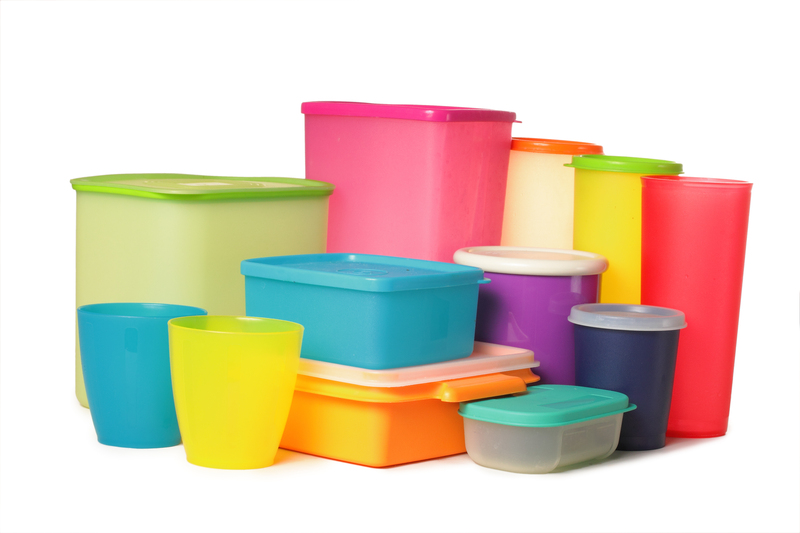Innovative Ways to Recycle Restaurant Waste
In today's environmentally conscious world, restaurants are under increasing pressure to find sustainable solutions for managing their waste. With a significant portion of waste in landfills coming from food and other materials discarded by eateries, innovative recycling methods have become not just necessary but also beneficial for the business. In this comprehensive article, we delve into effective and creative ways that restaurants can recycle waste, reduce their environmental footprint, and even enhance their bottom line.
The Importance of Recycling Restaurant Waste
The hospitality industry, particularly restaurants, generates a substantial amount of waste daily. This includes food scraps, packaging, glass, cardboard, and other materials. Effective waste management is crucial for several reasons:
- Environmental Impact: Proper recycling reduces the need for landfill space and minimizes pollution.
- Cost Efficiency: Many recycling programs can be cheaper than waste disposal.
- Brand Image: Consumers increasingly prefer businesses that prioritize sustainability.
With these benefits in mind, let's explore some innovative ways to tackle restaurant waste.

Composting: Turning Food Waste into Valuable Resource
Composting is perhaps one of the most effective methods to recycle food waste. By breaking down organic waste, restaurants can reduce landfill contributions and create nutrient-rich compost.
Setting Up a Compost System
Setting up a compost system on-site can be feasible for many restaurants. This involves:
- Educating Staff: Training your team to separate compostable materials from other waste is a critical first step.
- Compost Bins: Provide easy-to-access and clearly marked bins for different waste types.
- Using a Compost Service: If space is limited, partnering with a local compost service can be practical.
Not only does composting reduce waste, but the resulting compost can also be used to enrich gardens or sold to generate additional revenue.
Creative Reuse of Cooking Oil
Used cooking oil can be a resource rather than waste. Implementing innovative recycling techniques for cooking oil can lead to sustainable results.
Converting Oil into Biodiesel
Restaurants can partner with companies that convert used cooking oil into biodiesel. This alternative fuel is environmentally friendly and reduces reliance on fossil fuels.
- Collection Services: Many cities offer free collection services for used cooking oil.
- Local Biodiesel Producers: Collaborate with local producers who turn oil into energy, supporting the local economy.
This method not only disposes of waste efficiently but also contributes to cleaner energy sources.
Upcycling Food and Packaging
Upcycling goes beyond recycling--it's about creating something new and valuable from waste materials.
Transforming Food Scraps
Instead of disposal, consider creative uses for food scraps:
- Stock and Broths: Use vegetable peels and bones to make nutritious stocks.
- Baked Goods: Overripe fruits can be transformed into delicious desserts.
- Dehydrated Snacks: Dry leftover fruits and veggies for healthy chips.
Repurposing Restaurant Packaging
Restaurants use significant amounts of packaging, much of which can be reused:
- Glass Jars: Utilize glass jars for storage or create unique decorations.
- Cardboard and Paper: Shred for composting or reuse as packaging materials.
These methods not only minimize waste but can also add value and creativity to your operations.
Food Donation: An Ethical Way to Manage Surplus
Many restaurants face the challenge of dealing with surplus food. Instead of discarding excess, consider donating it to those in need. This is a practical, ethical, and community-oriented approach to waste management.
Partnering with Food Banks
Establish connections with local food banks or charities that accept food donations. Ensure that food safety standards are met to prevent waste while aiding your community.
Utilizing Food Rescue Services
Numerous services and apps specialize in rescuing surplus food from restaurants, reducing waste, and feeding more people. These services often handle collection and distribution, making it easy for restaurants to participate.
By donating excess food, your restaurant not only reduces waste but also fosters goodwill and community support.

Advanced Technologies in Waste Recycling
As technology advances, new methods are emerging to make waste management more efficient and effective.
Smart Waste Solutions
Invest in smart waste management systems that track waste production, optimize collection routines, and promote recycling. These systems often provide reports that help restaurants identify areas for reduction, ultimately refining operational efficiency.
Onsite Waste Treatment
Some innovative technologies allow restaurants to treat organic waste onsite, converting it into energy or greywater for plumbing, saving costs on both waste and utilities.
Adopting technology-based solutions can streamline a restaurant's waste strategy, leading to better financial and environmental outcomes.
Conclusion: Making Waste Work for You
Tackling restaurant waste need not be an overwhelming challenge. By employing these innovative recycling strategies--from composting and upcycling to smart technology and ethical food donations--restaurants can transform waste management into a profitable and sustainable practice. Not only does this approach protect the planet, but it also enhances the restaurant's brand and builds stronger community ties.
Start integrating these methods today, and witness how they can redefine sustainability in the restaurant industry, proving that waste, when managed innovatively, can become a valuable resource.